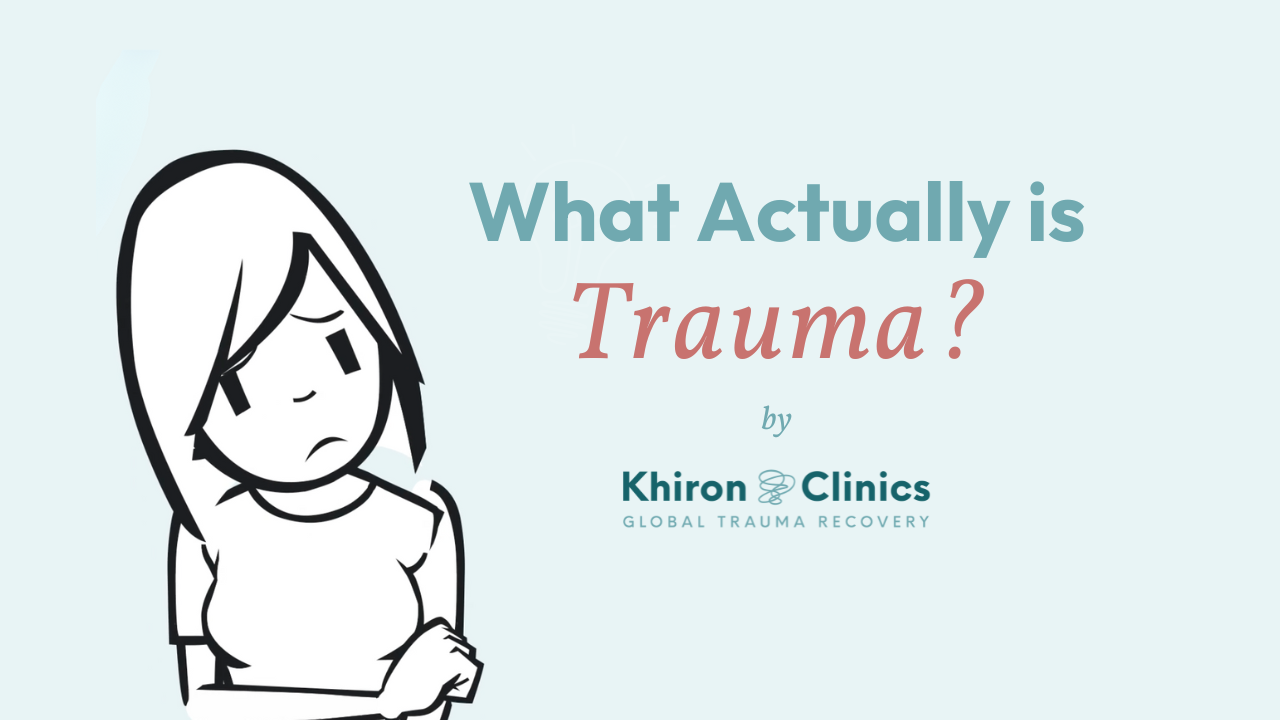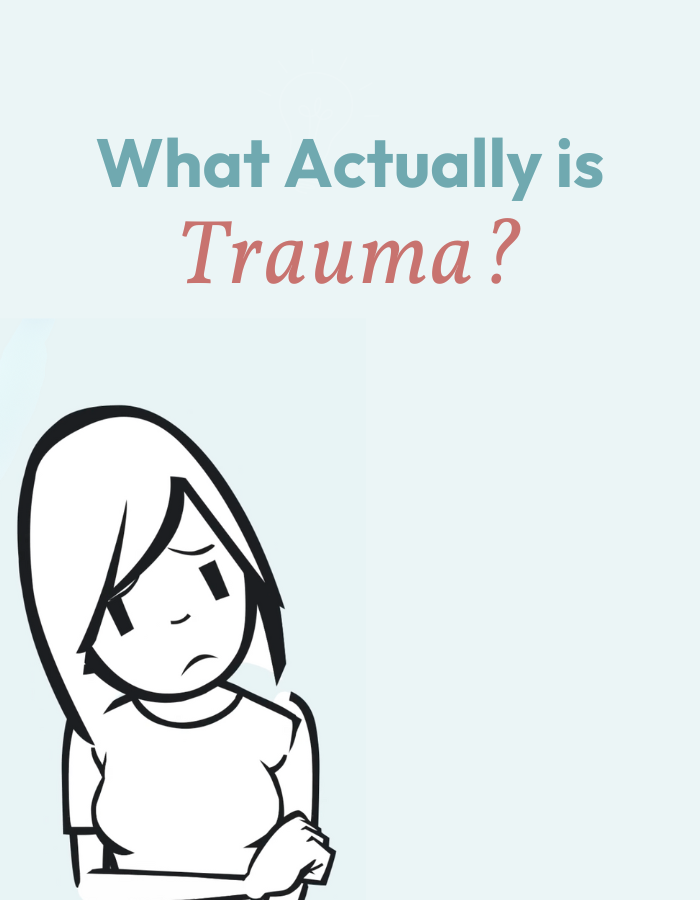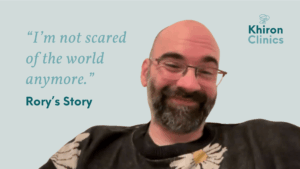Depression & Trauma: Signs, Causes, and Treatment Approaches
Depression is one of the most common mental health conditions worldwide, affecting millions of people across all ages and backgrounds. It goes far beyond sadness, draining energy, motivation, and hope, making everyday life feel heavy and unmanageable.
At Khiron Clinics, we understand that depression is not just a disorder of the mind but a reflection of what happens in the body when the nervous system becomes overwhelmed. When stress or trauma go unresolved, the body can remain stuck in a state of shutdown or exhaustion, leaving us feeling numb, disconnected, or hopeless.
Many people living with depression have experienced trauma, sometimes through clear events like loss or abuse, and sometimes through ongoing emotional neglect or disconnection. At Khiron Clinics, our approach helps the body and mind reconnect with safety, restore regulation, and rediscover a sense of vitality. If you are struggling with persistent sadness or emptiness, you are not alone, and healing is possible.
At Khiron clinics, we see mental health issues as manifestations of unresolved trauma that leads to a dysregulated nervous system.
What Is Depression?

Depression is a diagnosable mental health condition recognised in ICD-10, ICD-11, and NICE guidance. Unlike temporary sadness or low mood, clinical depression persists over weeks or months, affecting thoughts, emotions, and daily functioning.
In adults it may appear as persistent low mood or loss of interest in activities, fatigue, irritability, or physical complaints, while young people may show irritability, academic difficulties, or social withdrawal. Professional assessment is essential to understand and treat depression effectively.

Could You Be Experiencing Depression?
Anyone can experience periods of depression in their lives. Many of us are familiar with natural fluctuations in mood, including moments of sadness, distress, or generally feeling low. These experiences are a normal part of life.
However, when these feelings persist for weeks or months and become overwhelming, they can start to affect day-to-day functioning. Everyday responsibilities—getting out of bed, going to work, looking after loved ones, or even managing small daily tasks—can begin to feel unmanageable.
This ongoing low mood can develop into persistent depressive disorder or major depression, which are diagnosable mental health conditions requiring professional support.
Common signs people notice in themselves before seeking help include:
Persistent sadness or emptiness that doesn’t lift
Loss of interest or pleasure in activities they once enjoyed
Fatigue or low energy that makes simple tasks exhausting
Trouble concentrating, remembering things, or making decisions
Changes in sleep patterns or appetite
Withdrawal from friends, family, or social activities
Feelings of hopelessness, worthlessness, or excessive guilt
Physical aches, tension, or unexplained pain
Recognising these signs early is important, as they can indicate that the nervous system is under stress and the body is struggling to regulate.
What Are the Types of Depression?
Depression can present in different forms, each with unique patterns and severity. Common types include:
Major Depressive Disorder: Persistent low mood and loss of interest or pleasure in most activities.
Persistent Depressive Disorder (Dysthymia): Long-lasting, milder depressive symptoms that can last for years.
Bipolar Depression: Depression in the context of bipolar disorder occurring alongside periods of mania or hypomania.
Seasonal Affective Disorder (SAD): Depression linked to seasonal changes, often in winter months.
Postpartum Depression: Depression occurring after childbirth, affecting mood and bonding.
Premenstrual Dysphoric Disorder (PMDD): Severe mood changes tied to the menstrual cycle.
Situational/Adjustment Depression: Triggered by stressful life events such as bereavement, job loss, or major transitions.
What Are the Signs of Depression?
Depression can manifest in a variety of ways, and the subjective experience depends on the individual. Therefore, many different symptoms align with depression.
The main symptoms include:
- Intense feelings of sadness
- Lack of motivation
- Despair
- Hopelessness
- Irrational anger or irritability
- Frequent crying
- Emptiness
- Emotional numbness
- Anxiety
- Low confidence
- Problems with memory and concentration
- Feelings of isolation and disconnection
Depression can manifest as physical symptoms too, such as:
- Changes in appetite
- Changes in sex drive
- Aches and pains
- Sleep issues
- Low energy
- Stomach issues
What Causes Depression?
Depression is complex and usually arises from a combination of factors rather than a single cause. Psychological factors, stressful life events, and trauma can all contribute. A family history of mental health conditions such as bipolar disorder, panic disorder, or substance abuse can increase vulnerability, as can experiences of physical or sexual abuse.
Other contributing factors include:
Life events: bereavement, divorce, or financial stress
Health conditions: chronic illness, hormonal changes, or pain disorders
Biological factors: genetics and imbalances in brain chemistry
Co-occurring mental health conditions: anxiety, PTSD, or substance misuse
At Khiron Clinics, we understand that depression rarely has a single cause. It often results from the interaction of multiple factors, including unresolved trauma that affects the nervous system, emotions, and daily functioning.
70% of adults have experienced some form of trauma, including abuse, domestic violence, relationship breakdown, crime, and neglect. Trauma can be either a single event or a series of events over time, and it is how we react to these events that causes issues later in life.
We often store trauma unconsciously, leaving it unprocessed and therefore unhealed. Whilst we may not be able to consciously access these memories, the experience of trauma remains with us.

“Trauma is not what happens to you, but what happens inside you as a result of what happens to you.”
How Trauma Contributes to Depression Symptoms
Trauma can leave a lasting mark on both the brain and the body. When experiences such as abuse, neglect, violence, or accidents are not fully processed, they can alter brain chemistry, affect hormone regulation, and create persistent patterns of stress and hypervigilance.
Adverse childhood experiences, in particular, can shape how the nervous system develops, often leaving it stuck in a state of heightened alert. Over time, this dysregulation makes it harder for the body to return to calm, increasing vulnerability to depressive disorders.
At Khiron Clinics, we understand that depression is often not just a chemical imbalance but a reflection of unresolved trauma and a nervous system struggling to feel safe. By addressing trauma directly, we help clients restore balance, regulate emotions, and support long-term healing.
The Dysregulated Nervous System
Even when the traumatic situation is over, your body keeps re-experiencing trauma as if it is still happening. This causes our nervous system to become dysregulated, as it constantly responds to perceived threats. Whilst we rationally know that we are safe, our nervous system does not.
The nervous system is made up of several parts. There is the central nervous system, consisting of the brain and spinal cord, and the peripheral nervous system, which includes the The ANS has two branches:
Parasympathetic Nervous System: Known as the rest-and-digest system, it promotes calmness and relaxation.
Sympathetic Nervous System: Responsible for the fight-or-flight response, it prepares the body to handle threats by increasing heart rate, blood pressure, and adrenaline production, while suppressing non-essential functions like digestion and immunity.
Meanwhile, things like digestion, immunity, and even our ability to connect with others take a back seat. Whilst this keeps us safe in times of danger, our bodies shouldn’t stay in this heightened state for too long. When trauma is stored in the body without being processed, our nervous system remains stressedstruggles to calm down.
Over time this can lead to complex mental disorders such as anxiety, major depressive disorder, or even trauma-linked severe symptoms that interfere with day-to-day functioning.
To understand more about the nervous system’s role in trauma, explore our founder Benjamin Fry’s book, The Invisible Lion, here.
Even when the traumatic situation is over, your body keeps re-experiencing trauma as if it is still happening. This causes our nervous system to become dysregulated, as it constantly responds to perceived threat.
Who Is at Risk of Depression?
Depression can affect anyone, but certain factors may increase vulnerability:
Family history of mental health conditions
Personality traits such as perfectionism or high sensitivity
Older adults experiencing isolation or managing co-occurring health conditions
Social and economic stressors, including financial pressure or lack of support
These factors can make it more challenging to cope with life’s difficulties and may contribute to the development or persistence of depressive symptoms.
Treatment for Depression and Trauma at Khiron Clinics
Khiron Clinics delivers cutting-edge, nervous system-based treatment to help individuals who are experiencing mental health crises. Our team is made up of expert psychologists and therapists who have extensive experience in treating depression. They can work with you to understand your symptoms and help find the issues at the root of your experience, which are usually linked to unresolved trauma. Through finding the source of the issue, we are better equipped to help you on your path to recovery. This allows our clients to finally address the emotional pain, destructive patterns, and trauma that other treatments and therapies have failed to target.
Our innovative treatments and therapies can reduce the effects of depression, and help you feel more in control of your life. By working through trauma, you can teach yourself healthier patterns of thinking by rewiring your brain and nervous system to become more balanced. This in turn can bring more stability and resilience to your life.
Our therapeutic setting supports trauma healing, allowing clients to transfer these skills into their daily lives. This holistic approach not only reduces the effects of depression but also helps clients feel more in control, fostering stability and resilience.
Our Therapeutic Approach
Bodily Awareness: Addressing trauma through understanding physiological responses and safety mechanisms like fight, flight, or freeze reactions.
Self-Awareness and Nervous System Regulation: Enhancing self-awareness and learning to regulate the nervous system.
Healing in Relationships: Recognising that trauma often stems from early relationships, we emphasise the importance of building feelings of safety with others, practising effective communication, recognising triggers, and developing coping mechanisms.
We can work with you to understand your symptoms and help find the issues at the root of your experience, which are usually linked to unresolved trauma. Through finding the source of the issue, we are better equipped to help you on your path to recovery.
Our Recovery Roadmap
Khiron Clinics follows a three-phase approach to treating trauma: Stabilisation and Symptom Reduction, Trauma Processing and Integration.
Stabilisation
This phase focuses on understanding and getting to know oneself, reducing symptoms, learning about trauma and how to self-regulate so you can stay in connection with others and the present moment.
Trauma Processing
This phase starts by fostering safety and security in the body and mind, allowing individuals to recognise triggers, manage emotions, and make mindful choices. With therapist guidance, they learn to release stuck trauma and emotions by discharging incomplete defensive responses, while also rebuilding compromised life skills such as setting boundaries and building new connections in safe relationships. This approach helps to prevent depression from escalating into severe symptoms or suicidal thoughts, particularly for older adults and those managing co-occurring health conditions.
Integration
This phase is where we support clients to take their newfound regulation, self-awareness and knowledge out into the real world so that they can apply the skills that they have developed in treatment in their daily life.
FAQs
Feeling depressed “for no reason” can be confusing, but depression often stems from a combination of psychological factors, past trauma, or a family history of mental health conditions. Even if there’s no obvious trigger, the nervous system may be dysregulated, making depression symptoms appear without a clear cause.
If you are experiencing depression, the first step is to reach out to a mental health professional. Mental health treatment can include trauma-informed therapy, talk therapy, or other approaches that help regulate the nervous system and restore daily functioning. Support from friends, family, or support groups can also be invaluable.
Stressful events, physical or sexual abuse, neglect, or ongoing life events can all trigger depressive episodes. Trauma can alter brain chemistry and leave the nervous system stuck in survival mode, making individuals more vulnerable to major depressive disorder or persistent depressive disorder.
People with clinical depression or major depression often feel disconnected from others, experience low mood, or have depressive symptoms such as fatigue and hopelessness. Isolation can also be a protective response when the nervous system is dysregulated, as social interactions may feel overwhelming or unsafe.
Major depressive disorder is a diagnosable depressive disorder defined in the ICD-10/ICD-11 and characterised by prolonged depressed mood, loss of interest, and severe symptoms that affect day-to-day functioning. Clinical depression is a broader term that encompasses both mild and severe forms of depression.
Yes. Older adults with depression, especially those with past trauma, can benefit from trauma-focused treatments. Approaches that address the nervous system, such as somatic therapies combined with talk therapy, can improve daily life, emotional regulation, and overall resilience.
Absolutely. Many people respond well to psychological therapies, including cognitive behavioural therapy, interpersonal therapy, or trauma-focused interventions. These approaches target the root causes of depression, including unresolved trauma, and can help restore day-to-day functioning without relying on antidepressant medication.
Yes. Stressful events, such as bereavement, relationship breakdowns, financial pressures, or physical health conditions, can increase vulnerability to depression. The nervous system may become dysregulated, leading to prolonged depressive episodes and persistent depressive disorder if left unaddressed.

Download the Brochure
Discover Our Innovative Trauma Recovery Pathway
Next Steps
We Are Here to Help You Find the Path to Effective, Long Lasting Recovery.

Talk to Us
Get in touch with us and share your story if you feel comfortable with someone who will listen. Our team are always here to help.

Book an Initial Consultation
Meet with a senior member of our clinical team and get insights into the root causes of your issues, plus a written summary and treatment recommendation.

Download Our Brochure
Discover our innovative trauma recovery pathway. Find out more about how we treat, what we treat, our clinics, pricing and more.











